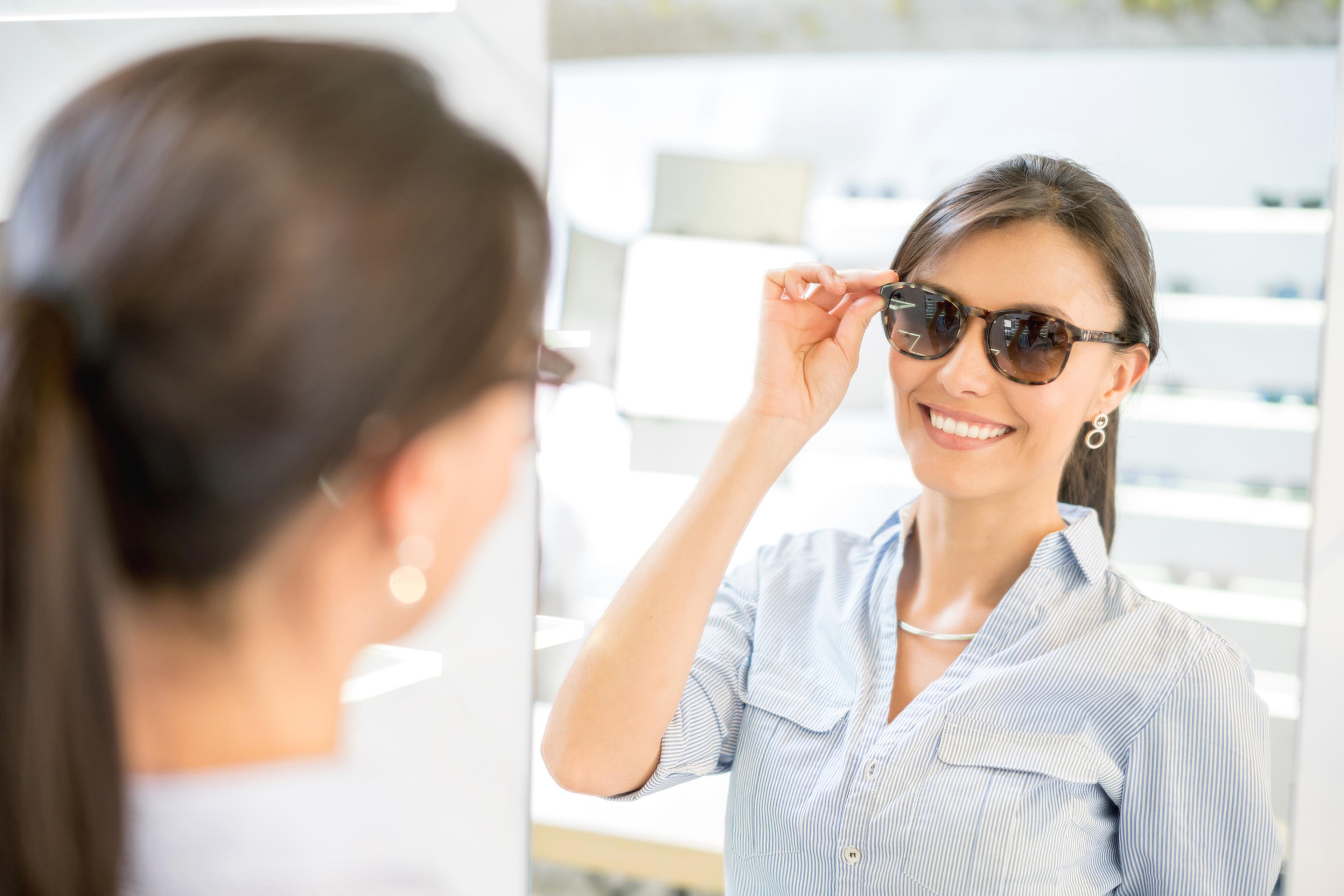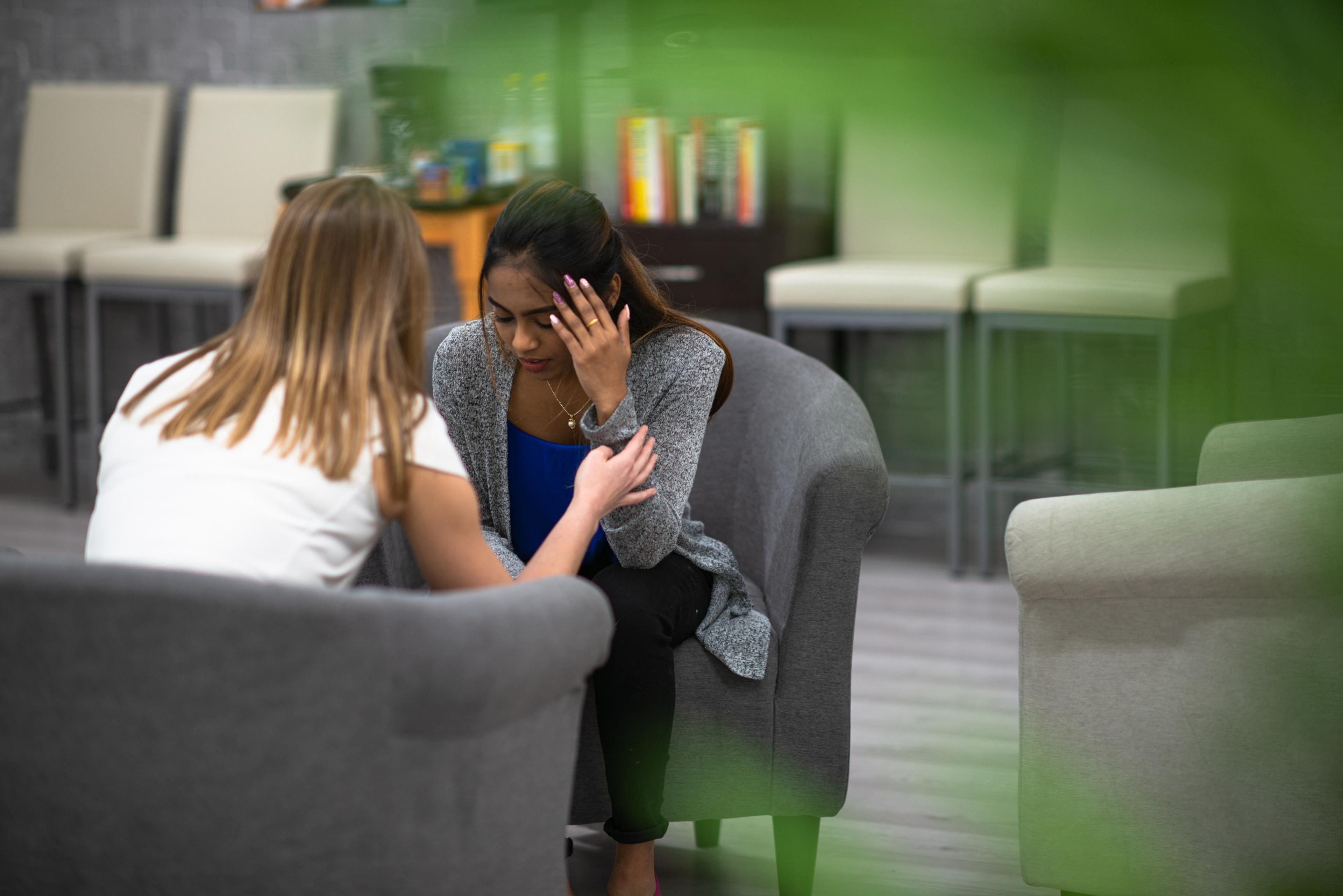Six Sunglass Shopping Tips to Eye Before You Buy
Jake Newby
| 3 min read

Sunglasses are much more than a fashion accessory. We wear them to protect our eyes and vision from the sun’s harmful ultraviolet (UV) rays, which can do damage all year round, not just during the summer.
The skin around the eyelids is extremely delicate, according to the Mayo Clinic. Its thinness makes it susceptible to UV light damage. If left unprotected, the cornea, lens and other parts of the eye can easily be damaged by UV rays, as well.
Sunglass shopping tips
Before factoring in style and the latest trends, consider these tips when looking for a new pair of sunglasses.
- Look for 100% UV protection: Make sure any pair of sunglasses you buy have broad spectrum coverage. Check for a tag or label that says they provide 100% protection from both UVA and UVB rays. According to the American Academy of Ophthalmology (AAO), they may also say “UV absorption up to 40nm,” which is the same thing.
- Prioritize lens quality: The AAO recommends taking these steps to examine the quality of nonprescription sunglass lenses:
- Look at something with a rectangular pattern, like a tiled floor.
- Hold the glasses at a comfortable distance from your face and cover one eye.
- Move the glasses slowly from side to side, then up and down, looking through the lenses.
- If the rectangular lines stay straight, the lenses are fine. If the lines are wavy or wiggle (especially in the center of the lens), try another pair.
- Bigger means better: Per the Mayo Clinic, the bigger your sunglass lenses are the better, to protect the thin and sensitive skin around the eyes.
- Darker does not always mean better: Darker lenses are not inherently more protective than lighter lenses. Sunglass tint does not reflect how well lenses block UV light. Sunglass lenses are treated with UV-absorbing chemicals that are typically colorless, so clear lenses are just as capable of blocking UV light as dark lenses. Once again, it comes down to broad spectrum coverage and whether the pair you are inspecting offer 100% UV protection.
What are polarized sunglasses?
Polarized sunglasses – also known as anti-glare sunglasses – reduce light glare and prevent eyestrain.
Light from the sun tends to scatter as it bounces at varying angles off an uneven object. But if the surface of that object is smooth, light reflects at one angle. When this light reflects directly into your eyes, we experience a glare. Polarized sunglasses reduce glare and solve the issue. However, polarized lenses don’t automatically provide UV protection; you still have to make sure their labels note 100% UV protection.
According to the AAO, polarized sunglasses are great options whenever you know you’ll be under the sun for extended periods of time. Examples include:
- A day at the beach
- Boating
- Fishing
- Golfing
- Playing winter sports or shoveling snow
Does insurance cover prescription sunglasses?
Prescription sunglasses, also known as Rx sunglasses, are sunglasses fitted with your specific eye prescription. While not mandatory, they are a worthy investment, especially if you’re the outdoorsy type. According to WebMD, benefits of prescription sunglasses include:
- Protection from UV rays, which aids in the prevention of certain eye diseases.
- Not having to worry about losing magnetic or clip-on sun shields, which can be costly to replace.
- Preventing eyestrain, headaches and possible injury from wearing nonprescriptive sunglasses.
Blue Cross Blue Shield of Michigan (BCBSM) and Blue Care Network (BCN) members can log into their member account, click “My Coverage,” then click “Vision” to learn more about:
- Your vision coverage
- Eye exams
- Lenses and frames
- Contact lenses
You can also explore Blue365® discounts under the “Health & Well-Being tab” of your member account. There, members can save money on frames when paired with prescription lenses and find others deals.
Keep reading:
- What to Look for in Clothes That Protect Against the Sun
- What are the Differences Between Borderline Personality Disorder and Bipolar Disorder?
- Transition to Fatherhood Carries Risk of Depression
Photo credit: Getty Images





